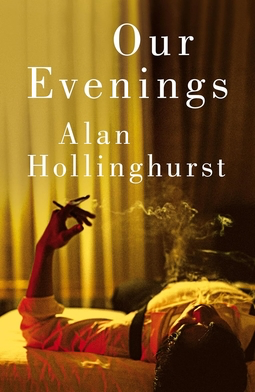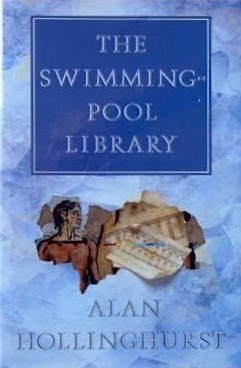 |
| Alan Hollinghurst at the 2011 Texas Book Festival, copyright Larry D. Moore |
But don't worry about all of that. Because above all things, a Hollinghurst is a cracking read.
His new novel, Our Evenings (2024) had me addicted for three all-consuming days, while I read steadily on through the almost 500 pages at breakfast, coffee, lunch, G&Ttime, dinner, throughout the evening and often, into the night. Nothing got done until the book was complete. And then, rather like the first 24 hours of a steaming affair, I lay back on my pillows and gasped, groaned, cried aloud, Oh, Alan, Alan!!! and found it difficult to sleep.The Guardian calls it 'his finest yet'; The novel tracks the currents of gay liberation and race relations, but with never a moment’s schematic overview...Of course, this is his best book. But then, I thought that of all of them.
The Stranger's Child (2011), tells the story of a minor poet, Cecil Valance, who, before being killed in the First World War, writes a poem "Two Acres", which goes on to become famous. As I read, I was searching for 'the stranger's child' within the novel, and not finding it, finally had to ask Google. It turns out to be a quote fromTennyson's "In Memoriam".
"And year by year the landscape grow / Familiar to the stranger's child."
In 2012 interview, Hollinghurst explained how he thought 'the music of the words is absolutely wonderful, marvellously sad and consoling all at once. It fitted exactly with an idea I wanted to pursue in the book about the unknowability of the future'
This, I think may be the first of Hollinghurst's perennial themes, a gold thread in his work; the unknowability of the future.
The Folding Star (1994) was my introduction to Hollinghurst. It's a hilariously funny book full of rampant gay sex and brilliantly executed scenes bursting with characters and dialogue. It is perhaps modelled slightly on Thomas Mann's Death in Venice, exploring the theme of transient beauty. So these two themes, 'the unknowable future', and 'ephemeral nature of beauty' run constantly through his books.The Swimming Pool Library (1988), his first book, was the second one I read, having devoured The Folding Star and wanting more. It won two prizes and is the perfect debut novel by someone not afraid to state upfront what their obsessions will be. It centres round a chance meeting where the main character saves the life of an older gay man in a public toilet, creating a story revealed within the story, dealing with ageing, race and cruelty, but also about keeping secrets…hiding the truth about yourself. Holinghurst starts his career as an author as he means to go on; strongly described gay sexual encounters, and lots and lots of characters who are often together in one scene.‘That’s a nice little piece,’ said Leo
‘It’s a very nice little piece,’ said Pete. ‘Louis Quinze.’
Nick ran his eye over the slightly cockled boulle inlay. ‘Well, it’s an encoignure,’ he said, and with a chance at charm: ‘n’est ce pas?
‘It’s what we call a corner cupboard,’ Pete said. ‘Where did you get this one, babe?’
‘Ooh...I just found him on the street,’ said Leo, gazing quite sweetly at Nick and then giving him a wink. ‘He looked a bit lost.’
‘Hardly a mark on him,’ said Pete.
‘Not yet,’ said Leo.
‘So where’s your father’s shop, Nick?’ said Pete.
‘Oh, it’s in Barwick – in Northamptonshire.’
‘Don’t they pronounce that Barrick?’
‘Only frightfully grand people.’
Pete lit a cigarette, drew on it deeply, then coughed and looked almost sick. ‘Ah, that’s better,’ he said. ‘Yes, Bar-wick. I know Barwick. It’s what you’d call a funny place, isn’t it.’ (Pg 107)
Although this has been plucked from its context, the reader can see that speech and meanings are at complete odds. As the three characters talk about antique pieces, we are given glimpses of what they can see as well as the subtext, offered in mostly body language and speech patterns. Hollinghurst doesn’t allow the dialogue to stray from the context of the scene, but it’s easy to picture what is going on during the chat. In other words, he supports his dialogue. Lengthy pieces of dialogue in prose, unsupported by narrative description and action, can lose emotional hold on the reader.
 |
| Gerald Manley Hopkins |
Óur évening is over us; óur night ' whélms, whélms, ánd will end us.
The poem reflects what the book achieves; it leaps, it soars, from impermanence to timelessness.
Take a look at Alan Hollinghurst's canon, pick a book at random and enjoy... then post me a note at Kitchentable and let everyone know what you think of this masterful author.






No comments:
Post a Comment
Leave a comment about this blog!